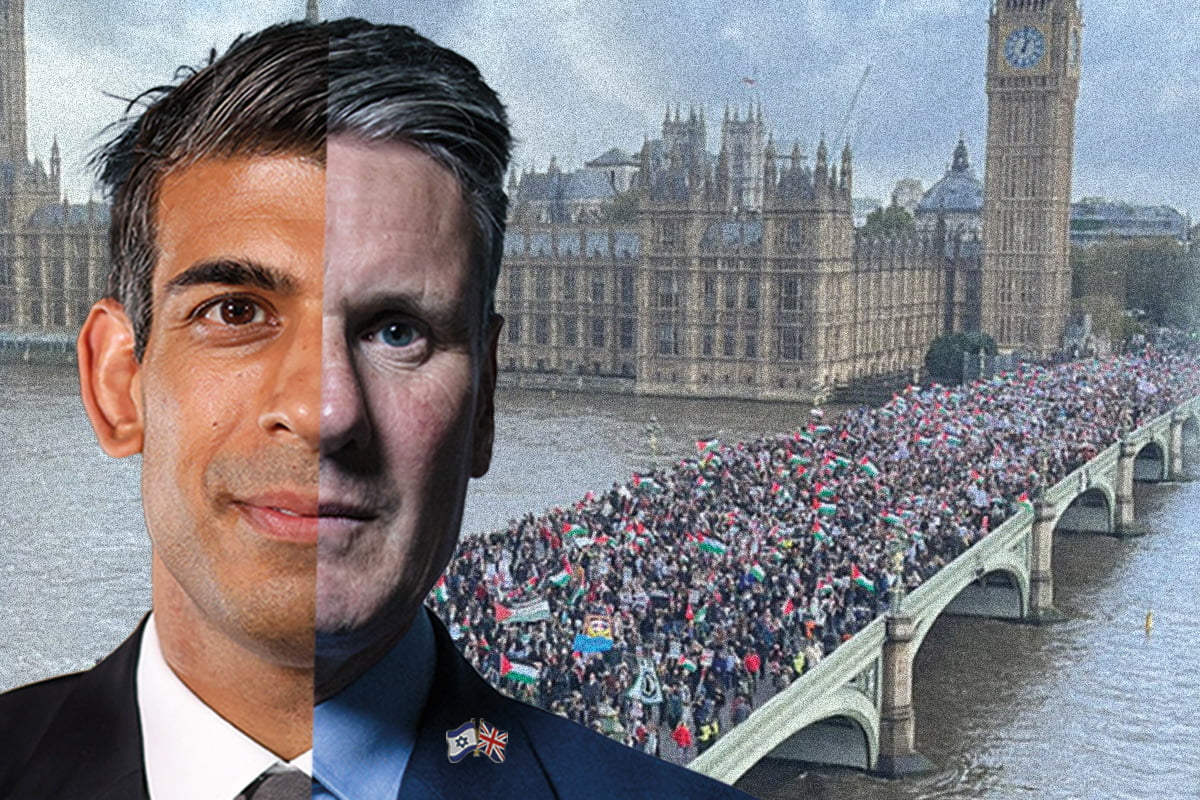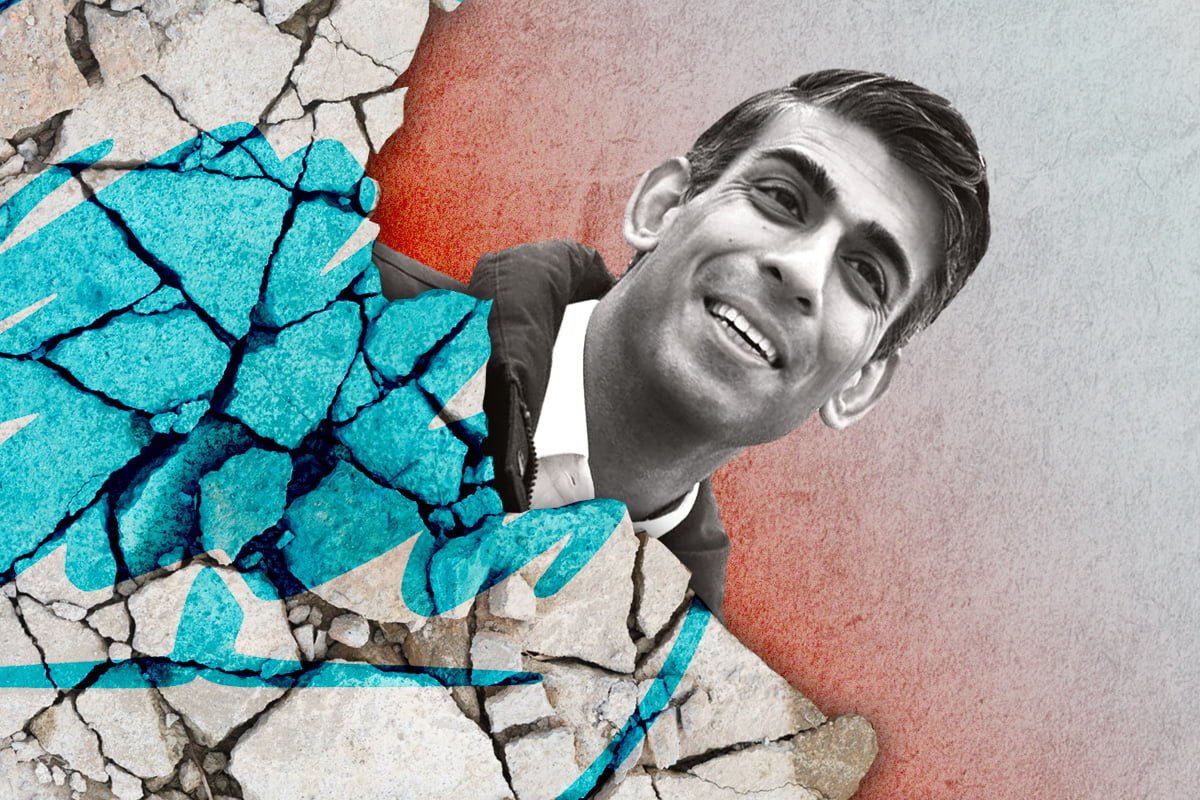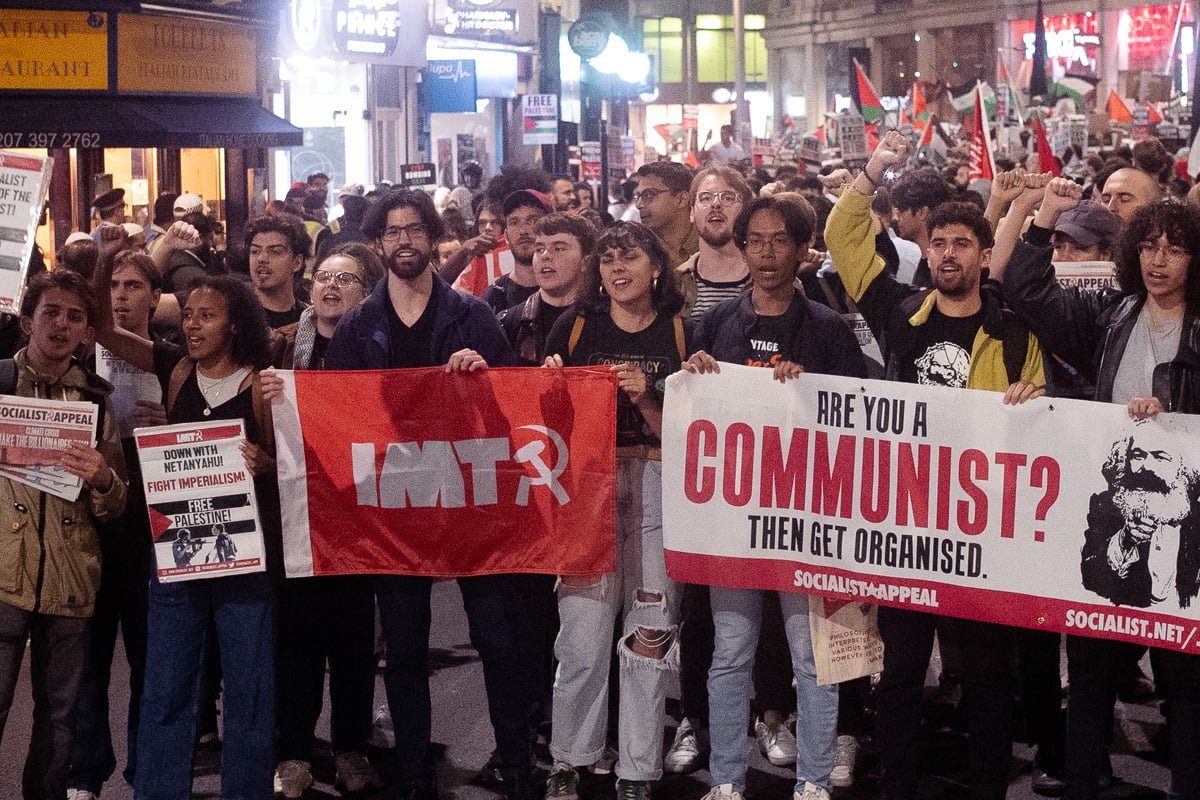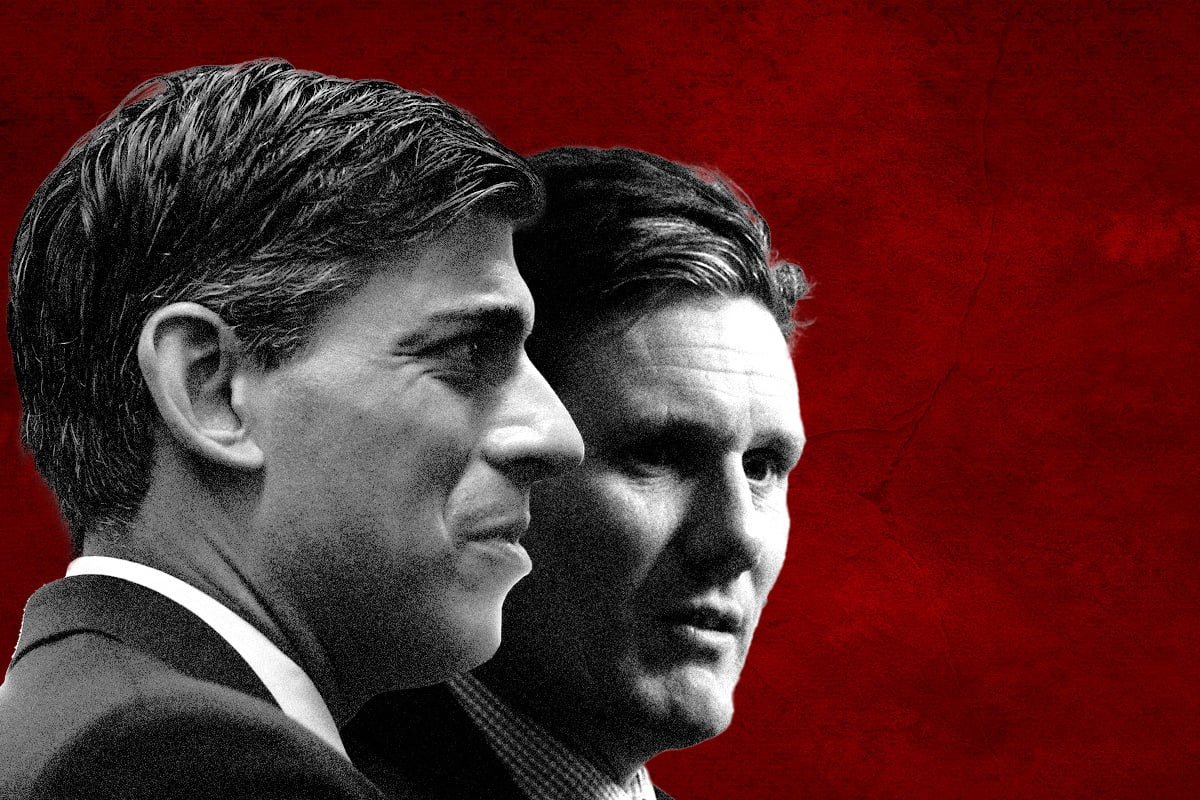Britain’s political establishment is floundering. That is the take home message from another turbulent week of events.
The Tories’ brace of by-election defeats in Wellingborough and Kingswood will not have come as a surprise to anyone. But they are nevertheless a humiliating blow to Rishi Sunak and his dysfunctional government.
At the same time, celebrations at Labour HQ will be muted, with the party distracted by the ongoing chaos in Rochdale, where another upcoming by-election is proving to be a headache for Keir Starmer.
For the ruling class, this political instability only adds to their existing woes – most notably over the UK economy, which has now officially entered into recession.
For the working class, disgusted by this entire circus, it is another reminder that none of these clowns and cretins represents the interests of ordinary people. They and their system must all go.
“They hate all of us”

The fact that yesterday’s by-elections had to be held in the first place is a reflection of the splits and degeneration inside the Tory Party. And the results will only accelerate this process of implosive decay.
The Tories had previously held strong majorities in both seats. But Wellingborough voters triggered a local contest by launching a successful recall petition against the constituency’s former MP: the disgraced Peter Bone, who was suspended from Parliament over accusations of abuse and harassment.
The election in Kingswood, meanwhile, was set in motion after Tory backbencher Chris Skidmore resigned in protest against the government’s pro-fossil-fuel policies – less out of principle, and more as the latest farcical piece of Conservative theatre.
In the first constituency, Labour overturned an 18,500 majority and registered a 28.6 percentage point swing from the Tories – the second largest shift of its kind since WW2. In the latter, Starmer’s party saw a 16.4 point swing, wiping out the Conservatives’ 11,000 majority.
This follows on from a wave of other by-election calamities for the Tories. Adding yesterday’s defeats, the Conservatives have now lost 10 seats in the course of this parliament, the worst record of any government in the past 50 years. Six of these have been in the past seven months, with Labour gaining five seats and the Lib Dems one.
Starmer has taken to the airwaves to gloat about Labour’s latest pair of victories. But these, as with the party’s other recent by-election wins, are less an indication of any genuine support or enthusiasm for him and his policies, and more a sign of the utter collapse of the Tories.
This can be seen from the low turnout in yesterday’s contests. Just 37% and 38% of voters made it to the ballot box in Kingswood and Wellingborough, respectively. In both seats, meanwhile, Labour was only able to pick up around half of the fall in the Conservatives’ support.
The real feeling amongst ordinary people is clear – one of “a plague on both their houses”. As one Labour canvasser aptly summarised: “The message on the doorstep was the same everywhere I went. Voters hate all of us.”
Sinking ship

With the Tories languishing in the polls, and a general election due this year, yesterday’s heavy losses will only add to the divisions and recriminations inside the party.
Voters are abandoning the Tories in droves: some to Reform UK, some to the Lib Dems, some to Labour, and some to the ‘none of the above’ camp. The party, in turn, is being torn to pieces as it attempts to appease its various conflicting groupings.
Senior Tory figures are appealing for unity. But with the party having to battle on at least three fronts simultaneously, in many cases with contradictory messages, there is no hope in hell of preventing the existing volatile setup from flaring up.
The current fragile Tory coalition was temporarily glued together thanks to the euphoria of the 2019 election victory and Boris Johnson’s zealous promise to ‘get Brexit done’. But years of crises and scandals are now taking their toll. And Conservative MPs are growing increasingly anxious at the prospect of losing their seats at the next election.
Many are fleeing Westminster like rats from a sinking ship. As it stands, 57 Tory MPs have indicated that they will step down in advance of this year’s general election – the largest number since the party’s landslide defeat in 1997.
This could further shift the balance of forces inside the Tory Party. More ‘moderate’ types, exasperated by the endless antics of their rabid colleagues, are no doubt already looking for lucrative new jobs in the City.
In the meantime, as the situation goes from bad to worse, a mutinous mood is spreading on the Tory backbenches. And rebellious MPs won’t be brought to heel so easily. At the very least, they want lashings of red meat. At most, they want Sunak’s head on a spike.
Losing control

The Tory leader faces threats both inside and outside his party.
The most cacophonous layers within the party are getting louder by the day. Even the catastrophic Liz Truss has attempted to stage a comeback, resuscitating herself and spearheading the launch of a new ‘Popular Conservatism’ faction, with a mission to wage a war on ‘woke’, on ‘the Blob’ in Whitehall, and on high taxes.
The barbarians of Reform UK, meanwhile, are knocking at the gates. The rebranded Brexit party came third in both Kingswood and Wellingborough, securing 10 percent and 13 percent of the vote, respectively, in the two constituencies. If repeated at a general election, this would spell doom for the Tories.
Both ‘PopCon’ and Reform are attracting Tory MPs and voters with their reactionary programmes on migration, climate change, and other divisive culture war issues.
This prepares the ground for a fractious realignment on the right, after a likely bruising defeat for the Tories at the next general election.
There could be a split in the Tory Party to the right, with the PopCons leaving and fusing with Reform.
Alternatively, with Rishi Sunak and Jeremy Hunt chewed up and spat out, the most frenzied elements of the Tory Party could look to ‘take back control’. In this scenario, the current leader and his supporters would be vomited out, with Nigel Farage and Reform UK ingested and absorbed in their place.
Whatever the outcome, it is clear that the ruling class has lost control over its primary political representatives: a symptom of the long-term degeneration of the Tory Party – itself a reflection of the long-term decline of British capitalism.
After the turbulent Boris Johnson years, and the even more tumultuous Liz Truss weeks, the establishment thought that they had regained their grip on the party by installing Rishi Sunak and Jeremy Hunt in Downing Street; and, more recently, by bringing back Lord ‘pig lover’ Cameron.
But now these hopes have surely been dashed. A Tory wipeout at the next election looks likely. And it will almost certainly be a headbanger such as Truss, Braverman, or Badernoch who replaces Sunak as Tory leader, presiding over an ultra-reactionary opposition to a crisis Labour government.
Starmer’s troubles

Next up is the by-election in Rochdale, set for 29 February. This contest is taking place due to the death of the constituency’s previous Labour MP, Tony Lloyd.
Due to a farcical series of events, however, the Labour Party will have no horse in this race. Yet three ex-Labour candidates will be on the ballot paper.
First up is Azhar Ali. Until recently, Ali was the official Labour candidate. But after a furore over accusations of antisemitism, the party subsequently disowned him. Yet it was too late for Labour to formally withdraw its endorsement, meaning that voters will still have the option of putting a cross next to Ali’s name at the end of the month.
The other two frontrunners are both former Labour MPs: Simon Danzcuk, the reprobate Blairite now standing for Reform UK; and more notably, George Galloway – a perennial thorn in the side for the Labour right wing, who is running on a Workers’ Party ticket.
Galloway has consistently called out the right-wing Labour leaders for their imperialist warmongering: both in terms of Bush and Blair’s adventures in Iraq; and now in relation to Starmer’s backing for Israel’s brutal campaign in Gaza and for US/UK airstrikes in Yemen.
On this basis, by channelling the anger amongst Muslim and Asian voters, as well as amongst workers and youth more widely, the former Respect MP has managed to upset Labour on more than one occasion, winning seats off the party in Bethnal Green & Bow in 2005 and in Bradford West in 2012.
Now he is on course to do the same in Rochdale, with bookmakers marking Galloway down as their favourite in the wake of Starmer’s recent embarrassing shambles.
Worryingly for Labour, the Rochdale example could be replicated elsewhere come the next general election.
A pro-Palestine candidate is set to stand against uber-Blairite Wes Streeting in Ilford North. Other independents are likely to challenge Labour in areas with large Muslim and Asian populations. And alongside Jeremy Corbyn in Islington North, it is not ruled out that some of these protest candidates could win.
From the fury felt over Gaza, to the impact of Starmer’s string of broken promises: it is clear that discontent against Labour is already brewing, before they even gain the keys to Number 10.
Events in Rochdale are therefore a harbinger of future troubles for Labour – troubles that will only be amplified in power, when the party is carrying out devastating cuts nationally and locally.
Join the communists

Both Galloway and Reform, in an opportunistic manner, are attempting to tap into public indignation towards the establishment.
Ben Habib, for example, Reform UK’s deputy leader and candidate in Wellingborough, told potential voters that he and his party were standing to sweep away a “corrupt political system”.
Galloway, meanwhile, is rightly denouncing Starmer and the Labour leaders over their apologism towards Israel’s genocidal slaughter in Gaza.
And even Liz Truss and Jacob Rees-Mogg launched their new populist outfit by railing against the out-of-touch global elites that meet every year in Davos.
In a distorted, partial way, these political figures and phenomena all reflect the same thing: the intense mood of bitterness and rage that exists in society; the disgust felt by ordinary people towards the entire Westminster caste.
There is a burning hatred of both major parties: not only over Gaza, which has acted as a lightning rod for all the accumulated anger in society, but against the whole rotten status quo and the capitalist establishment that upholds it.
In this respect, the latest dire numbers for the economy will be of more concern to workers than the latest polling numbers of the respective parties.
Even then, statistics only paint a partial picture. The UK economy may have officially just returned to recession. But for the majority of households, the last 15 years – or more – have felt like a permanent slump. According to some estimates, average living standards and life expectancy are no better today than they were in 2010.
Rather than paying attention to Britain’s parliamentary pantomime, most of us have more important matters on our minds: our pay, our jobs, and our day-to-day struggle to make ends meet.
But none of this finds an expression in ‘traditional’, ‘mainstream’ politics, which oozes with sleaze, corruption, and hypocrisy from every pore.
That is why we are launching a real political alternative; a force that will fight – not merely at the ballot box, but on the streets and in the workplaces – in the class interests of workers and youth everywhere: the Revolutionary Communist Party.
So don’t hesitate or wait. Join your party. Join the communists.
Letter from Wellingborough Communists
 The Wellingborough by-election to replace sex-pest Peter Bone has concluded with a resounding defeat for the Conservative Party. Labour’s Gen Kitchen took home the trophy with 46% of the vote to the Tories’ 25%. But things are far from over, and the mood in the town is far from settled.
The Wellingborough by-election to replace sex-pest Peter Bone has concluded with a resounding defeat for the Conservative Party. Labour’s Gen Kitchen took home the trophy with 46% of the vote to the Tories’ 25%. But things are far from over, and the mood in the town is far from settled.
Kitchen’s campaign was lacklustre, full of empty phrases such as her promise to “bang the drum for town centres”, whatever that means. This clearly failed to inspire most of the townsfolk, as the turnout to the election was only 38%, as compared to 64% in the last election.
Clearly there is little faith in the Conservatives thanks to the scandal surrounding our former ‘representative’. But Labour have failed to offer anything different. As a result, many feel unrepresented by the choices on offer.
There is a wide-open vacuum here, in a town gutted by austerity measures, for a real alternative – an alternative that the RCP can hopefully provide.






